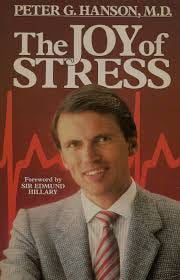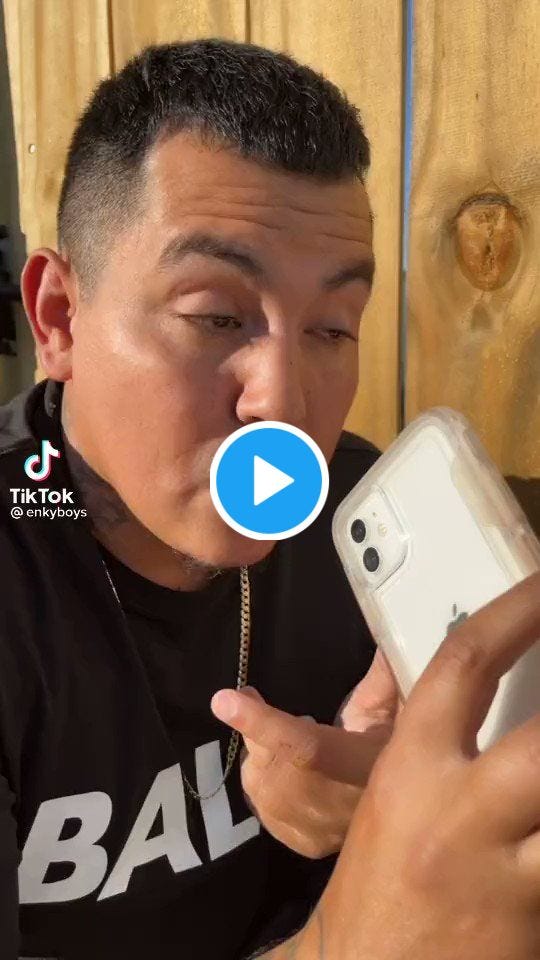Some Very Troubling News But Also a Cat Video
And some stuff about cartoons and stress management
Right now, I have an opportunity to repeat or shut down a pattern/habit I have long held. I would like to decline this opportunity.
I’ve had a harrowing few months trying to get a deal done with the right place to make new podcast episodes. Incredible amounts of stress. But the situation has been pretty much resolved now, I’m busy once again and thus: yay.
In the past, when a big stressful thing got resolved in life or work, I would simply transfer that stress onto some new worry. Writing deadline met? Great! Time to freak out about a kitchen remodel. And it’s not because that new thing suddenly got more stressful, it just moved up to first chair in the panic symphony. I never felt relief over the first stress source ending, I just unnecessarily carried the worry over. I was hooked on the worry, dependent on never feeling content.
The medical term for this is “fucked up shit”.
Trying to not do that this time and I have a plan. When the stress transference tries to happen and I spot it, I will sound the warning for myself, the warning that an illogical stress spiral is coming. I will recognize that stressing out is historically my primitive way of coping, which is common for someone who grew up on guard. You just flood the battlefield with as many untrained troops as you can but with no battle plan. It’s letting your brain tense up instead of gain strength.
Having spotted the fucked up shit, I will open the door for the inadvertent impulse to keep on moving straight out of my head.
I can’t control the instinct. It’s a vestigial and outdated self-preservation move. But I am in control of my actions. And I don’t know if this will work! Hope so! Has so far!
I’m plenty concerned about the mental health of the general public as we slowly - too slowly - begin to come out of covid. We’ve been through something like a massive shared trauma, with a greater number of deaths than 9/11 happening daily as of late. Now there is more, even scarier, research about how medical personnel are faring through this and it is not good news.
A big study about the state of mental health among these people took a specific look at the Mountain West region of the United States.
The researchers surveyed 571 health care workers, including 473 emergency responders (firefighters, police, EMTs) and 98 hospital staff (doctors, nurses), in the Mountain West between April 1 and May 7, 2020. Overall, 56% of the respondents screened positive for at least one mental health disorder. The prevalence for each specific disorder ranged from 15% to 30% of the respondents, with problematic alcohol use, insomnia, and depression topping the list.
One interesting wrinkle in the study was that anxiety levels were extremely high when these folks knew the crisis was coming but dropped when they started treating actual covid patients.
As these health care professionals heard about cases elsewhere before COVID-19 was detected in their communities, their anxiety levels likely rose in anticipation of having to confront the disease," Smith says. "But when the disease started trickling in where they were, perhaps it grounded them back to their mission and purpose. They saw the need and they were in there fighting and working hard to make a difference with their knowledge and skills, even at risk to themselves.
Meanwhile, another new study looks at how it’s going in England. Answer: Not great!
Almost half of healthcare staff working in Intensive Care Units (ICUs) through the Covid-19 pandemic in England could be suffering from problem drinking, severe anxiety and post-traumatic stress disorder (PTSD), new research from scientists at King’s College London and University College London suggests, highlighting the mental toll shouldered by health workers fighting the virus.
So what’s the effect of that?
Professor Neil Greenberg, the study’s lead author, said that the severity of symptoms identified are “highly likely to impair” staff’s ability to provide high-quality care as well as have a negative impact on their quality of life.
Part of what makes this problem so, well, depressing is that it has no clear solution. The providers are in rough shape. Which is bad. The quality of care they’re likely to provide is dropping. The hospitals are overly stretched so it’s not like you can give them more time off. If you give them time off, fewer people get treated for covid and you have to ask if no care is better than poor care. You can’t really provide a lot of counselors or mental health treatment because there aren’t enough of those people.
One of the nastiest parts of trauma is that it doesn’t always wear off after the event is over. It hides and then resurfaces by messing with your life in all sorts of ways. That’s what PTSD is. And it can go on for an entire lifetime if not addressed. So not only are patients getting substandard care from traumatized doctors and nurses - especially nurses, according to the research - those doctors and nurses might be permanently messed up from this long after covid-19 is eradicated.
Here’s where a sunny optimistic note would go if I had one but I don’t!
Enjoy this!
I was talking about anxiety, my favorite tv show, and my favorite character on it, and it led to this thread.


Okay! Take naps! Adopt a dog! Or a second dog if you only have one! Always have two dogs!





